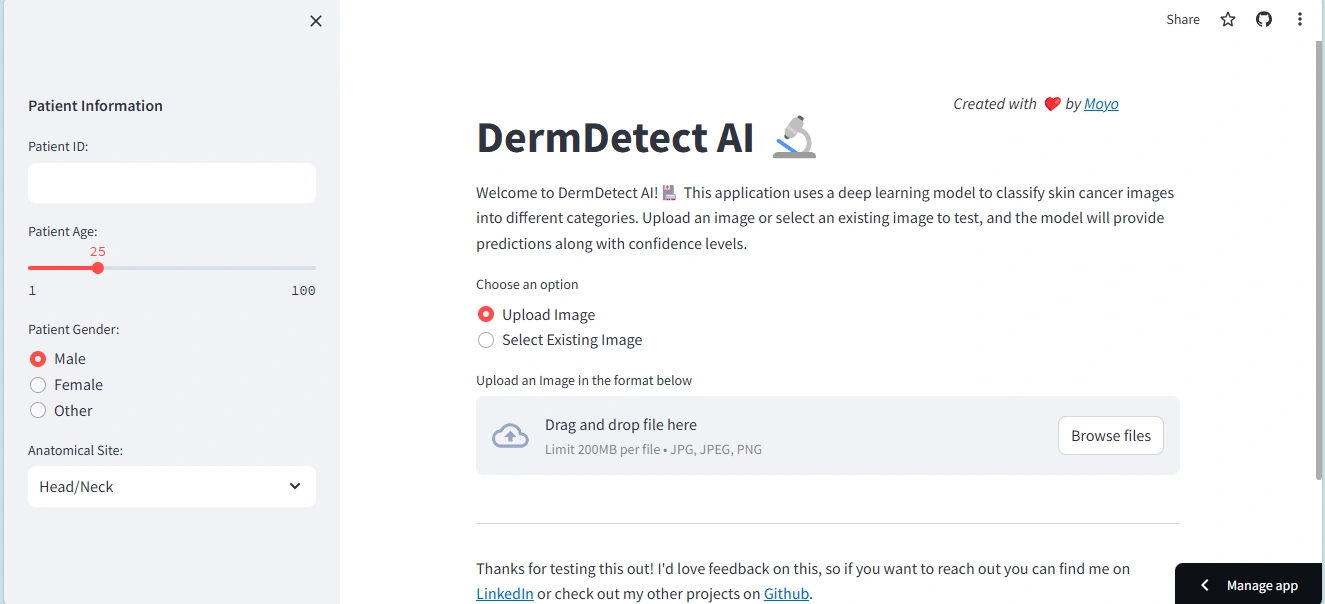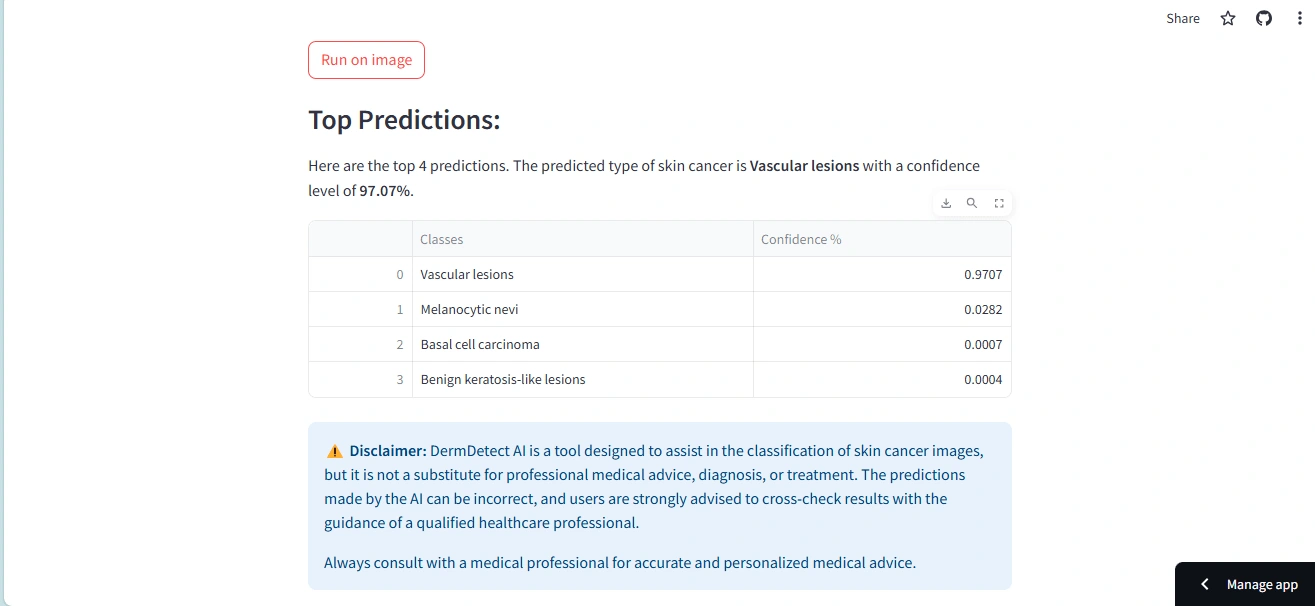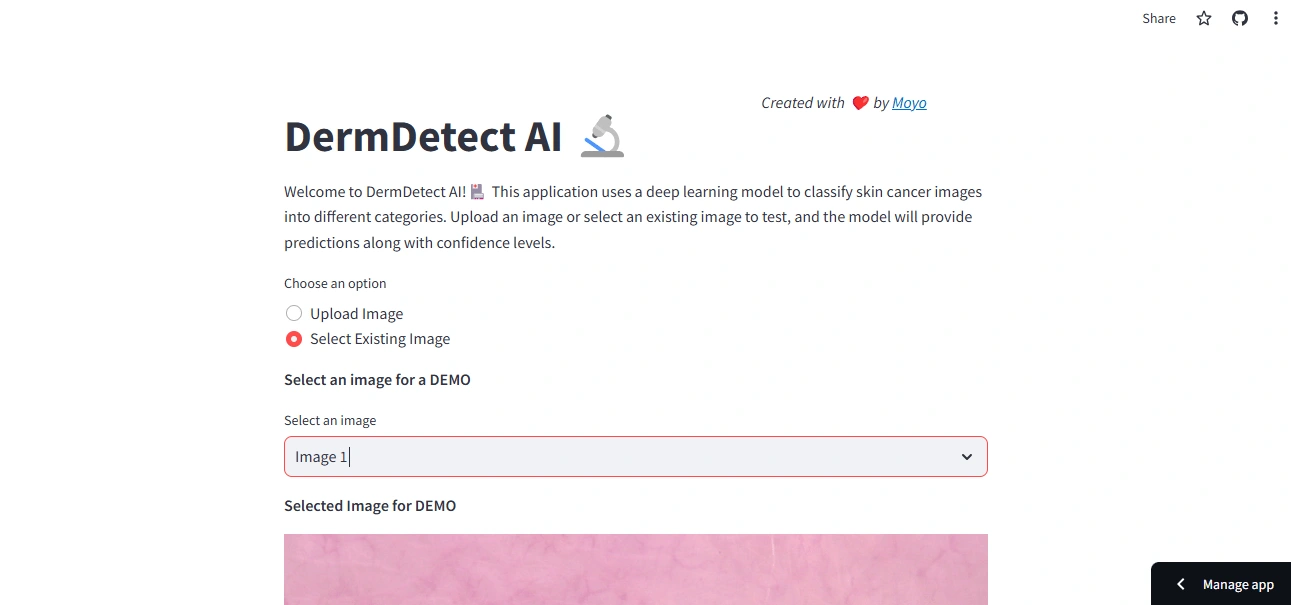AI-Powered Skin Cancer Classification : Computer Vision
Project Title: AI-Powered Skin Cancer Classification Using Transfer Learning
Built with Python
Overview:
This project tackles the critical challenge of early skin cancer detection. By leveraging deep learning techniques, specifically the DenseNet121 architecture, I developed a computer vision model capable of accurately classifying various types of skin cancer based on medical images.
Key Objectives:
Early Detection: Accelerate the diagnosis process, potentially reducing the time from initial consultation to biopsy results.
Improved Accuracy: Enhance diagnostic accuracy by leveraging a robust deep learning model trained on a diverse dataset of skin lesions.
Reduced Human Error: Minimize the risk of misdiagnosis through the use of a reliable AI-powered classification tool.
Enhanced Patient Outcomes: Contribute to better patient outcomes by enabling early intervention and targeted treatment.
Technical Approach:
DenseNet121: Implemented a deep convolutional neural network known for its effectiveness in image classification tasks.
Data Preprocessing: Processed and augmented the dataset to ensure diversity and improve model performance.
Model Training & Validation: Trained the model on a large dataset of skin lesion images, rigorously validating its accuracy and generalizability.
Impact:
This project demonstrates the potential of deep learning in the medical field, offering a promising solution for early skin cancer detection. The resulting model has the potential to streamline diagnostic workflows, improve accuracy, and ultimately save lives by enabling timely intervention.
Keywords:
Skin cancer classification, deep learning, DenseNet121, computer vision, medical imaging, AI in healthcare.
Snapshots



Like this project
Posted May 22, 2024
This project tackles the critical challenge of early skin cancer detection. By leveraging AI deep learning techniques
Likes
0
Views
3





